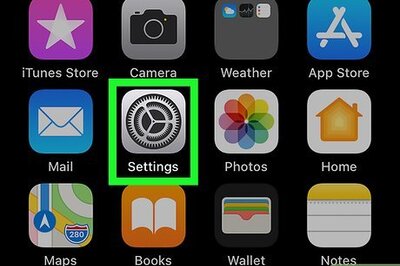
views
Despite all of the health apps, trackers and modern technology available to us, it seems nothing beats a visit to the doctor according to research from Harvard University.
Carried out by researchers from Harvard Medical School, the team asked 234 internal medicine physicians to evaluate 45 clinical cases and make the most likely diagnosis of the condition, along with two additional possible diagnoses.
The cases included a mix of both common and uncommon conditions with varying degrees of severity.
Each case was solved by at least 20 physicians, with the doctors' diagnosis then compared with 23 commonly used symptom-checker apps.
Symptom-checker apps have increased in popularity over the last decade partly in an effort to reduce medical and diagnostic errors, however this new study is thought to be the first to directly compare diagnoses between humans and computers.
The results showed that the physicians outperformed the apps, naming the correct diagnosis first 72 percent of the time, compared with just 34 percent of the time for the apps.
In addition the physicians listed the correct diagnosis in the top three possibilities 84 percent of the time, compared with 51 percent of the time for the apps.
The team also observed that the biggest difference between physician and computer performance was found in more severe and less common conditions, and was smaller for the less severe and more common illnesses.
However despite their superior performance in the study, physicians still made errors in about 15 percent of cases, with doctors in general making errors around 10 to 15 percent of the time according to researchers.
A method of reducing errors further could now involve using doctors' diagnoses in conjunction with computer-based algorithms, with senior investigator Ateev Mehrotra, commenting that, "While the computer programs were clearly inferior to physicians in terms of diagnostic accuracy, it will be critical to study future generations of computer programs that may be more accurate."
The findings can be found published online in the journal JAMA Internal Medicine.
















Comments
0 comment